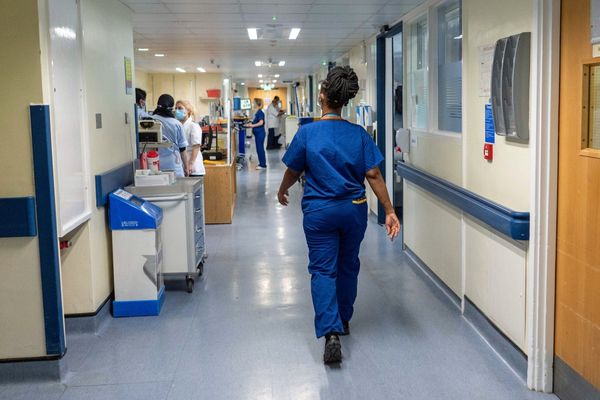Democrats announced Tuesday they will host their 2024 convention in Chicago, after seriously considering Atlanta and New York City, elevating the Midwest as a bedrock of their party.
Why it matters: President Biden faced pressure from Democrats in all three cities, but those in Chicago argued that picking a right-to-work state like Georgia would create major tensions with labor unions and white-working class voters just two months before the election.
- Democrats hosted their 2020 convention in Milwaukee, Wisconsin, at the International Brotherhood of Electrical Workers' urging.
- This is the first normal convention since Democrats went virtual in 2020 because of the pandemic, and the first time hosting in Chicago since 1996 — when the party nominated Bill Clinton for president and Al Gore for vice president.
Driving the news: The Democratic National Committee decision also comes the week after Brandon Johnson, a progressive Democrat, won the Chicago mayoral race after a contentious battle over how the party should handle crime in big cities.
- President Biden's relationship with Illinois Gov. J.B. Pritzker, who's considered a political and financial leader within the party, fortifies the decision to host there.
The backdrop: Democratic leaders from each city pressed DNC members for months and focused their pitches on how their respective regions would impact not just nominating, but electing the next president.
- The last time labor felt rebuffed by a Democratic president's convention site selection, it boycotted and redirected money and time to a different event.
- "It was a slap in the face" when Democrats selected right-to-work state North Carolina in 2012, Lonnie Stephenson, former president of the IBEW, told Axios. "Normally, we give financial support and we didn't that year."
The bottom line: Democrats are clear that they believe choosing Chicago will help build a winning coalition in 2024, and hope to maintain support in the Midwestern "blue wall" states of Illinois, Michigan, Wisconsin and Minnesota.
- It gives them an opportunity to tout the White House's economic agenda and infrastructure successes, and re-focus on manufacturing as a way to appeal to middle-class voters.







